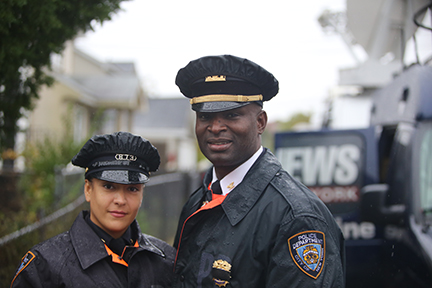Take a peak at our newest guide Conversations in Troubled Times!
Police-Community Relations
Conversation Guide
Interested in using this conversation guide? Click here to tell us about it!
We’re happy to help! If you find this guide valuable, please consider making a donation of $5 to help us continue offering free resources.

Communities function best with (a few) shared values like safety and order. We want our communities to be safe. We want law enforcement to be fair. We want police to do their job in a manner that is safe for them and for community members. We expect these elements to be a given-a shared goal based on shared values-but we are in a moment where instead of safety, we are witnessing tragedy in our communities. Smartphone video is documenting police and citizen interactions in a way that wasn’t possible in earlier times. The role, management and funding of police has come under question as incidents of violence crossing racial lines are no longer invisible to the larger community. This conversation offers an opportunity to speak of our experiences and perspectives on this situation.
Background Information:
While you don’t need to be an expert on this topic, sometimes people want background information. Our partner, AllSides, has prepared a variety of articles reflecting multiple sides of this topic.Let's Get Started!
Living Room Conversations offers a simple, sociable and structured way to practice communicating across differences while building understanding and relationships. Typically, 4-6 people meet in person or by video call for about 90 minutes to listen to and be heard by others on one of our nearly 100 topics. Rather than debating or convincing others, we take turns talking to share, learn, and be curious. No preparation is required, though background links with balanced views are available on some topic pages online. Anyone can host using these italicized instructions. Hosts also participate.
Introductions:
Why We're Here (~10 min)
Each participant has 1 minute to introduce themselves.
Share your name, where you live, what drew you here, and if this is your first conversation.
Conversation Agreements:
How We'll Engage (~5 min)
These will set the tone of our conversation; participants may volunteer to take turns reading them aloud. (Click here for the full conversation agreements.)
- Be curious and listen to understand.
- Show respect and suspend judgment.
- Note any common ground as well as any differences.
- Be authentic and welcome that from others.
- Be purposeful and to the point.
- Own and guide the conversation.
Question Rounds:
What We’ll Talk About
Optional: a participant can keep track of time and gently let people know when their time has elapsed.
Round 1:
Getting to Know Each Other (~10 min)
Each participant can take 1-2 minutes to answer one of these questions:
- What are your hopes and concerns for your family, community and/or the country?
- What would your best friend say about who you are?
- What sense of purpose / mission / duty guides you in your life?
Round 2:
Police-Community Relations (~40 min)
One participant can volunteer to read the paragraph at the top of the web page.
Take ~2 minutes each to answer a question below without interruption or crosstalk. After everyone has answered, the group may take a few minutes for clarifying or follow up questions/responses. Continue exploring additional questions as time allows..
- Where do you see police in your community? How are they contributing to protection and safety? How do you see their presence supporting or detracting from community well-being?
- What interactions have you had with police? What was that like for you? What impact does that have on your expectations for possible encounters in the future?
- What do you expect from law enforcement personnel?
- What happens when you watch videos documenting police-citizen violence?
- What is your hope for police-community relations?
Round 3:
Reflecting on the Conversation (~15 min)
Take 2 minutes to answer one of the following questions:
- In one sentence, share what was most meaningful or valuable to you in the experience of this Living Room Conversation?
- What new understanding or common ground did you find within this topic?
- Has this conversation changed your perception of anyone in this group, including yourself?
- Name one important thing that was accomplished here.
- Is there a next step you would like to take based upon the conversation you just had?

